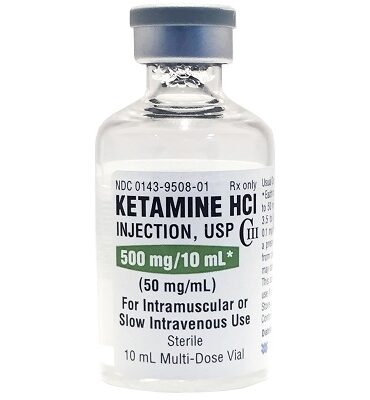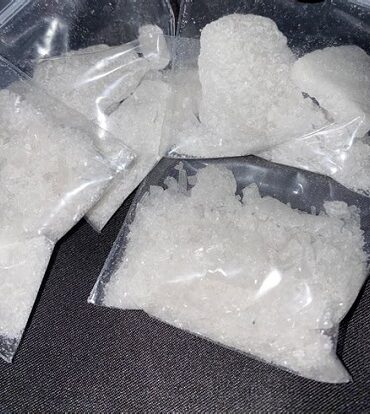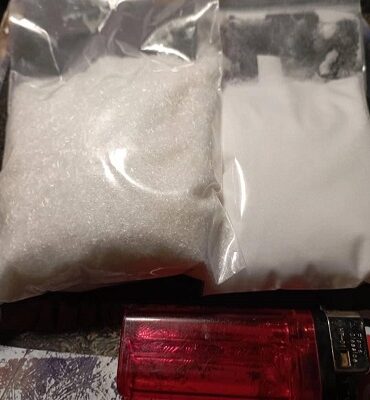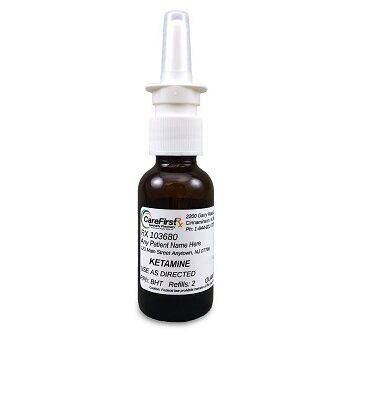Ketamine is a remarkable anesthetic widely used to induce and maintain anesthesia. Beyond its anesthetic properties, it can induce a trance-like state, offering pain relief, sedation, and memory loss. Interestingly, it is also being researched for its potential in treating depression, PTSD, and chronic pain. It distorts perceptions of sight and sound and makes the user feel disconnected and not in control.
This innovative compound, derived from phencyclidine in 1962, was aimed to create a safer anesthetic with reduced hallucinogenic effects. It’s a versatile more promising substance in various medical contexts, including the treatment of certain mental health conditions. If you’re considering ketamine therapy, it’s essential to consult with a healthcare professional to discuss its potential benefits and risks.
-
Ketamine
Ketamine Nasal Spray For Sale
$400.00Original price was: $400.00.$350.00Current price is: $350.00. -
 Sale
Select options This product has multiple variants. The options may be chosen on the product page Quick View Add to wishlistKetamine
Sale
Select options This product has multiple variants. The options may be chosen on the product page Quick View Add to wishlistKetamineBuy Ketamine Pills / Capsules Online
$175.00 – $1,750.00Price range: $175.00 through $1,750.00 -
 Sale
Select options This product has multiple variants. The options may be chosen on the product page Quick View Add to wishlist
Sale
Select options This product has multiple variants. The options may be chosen on the product page Quick View Add to wishlist -
 Sale
Select options This product has multiple variants. The options may be chosen on the product page Quick View Add to wishlist
Sale
Select options This product has multiple variants. The options may be chosen on the product page Quick View Add to wishlist -
 Sale
Select options This product has multiple variants. The options may be chosen on the product page Quick View Add to wishlist
Sale
Select options This product has multiple variants. The options may be chosen on the product page Quick View Add to wishlist
Is Ketamine An Opioid?
It is actually not classified as an opioid. It’s a dissociative anesthetic that works differently in the brain compared to opioids. While they can both be used for pain management, opioids primarily work on the opioid receptors meanwhile ketamin acts on the glutamate system. It’s important to note the differences, especially if you’re considering any kind of pain management or anesthesia, It’s important to always consult with a healthcare professional for personalized information about medications and their effects.
What Is Ketamine Therapy?
Experience the transformative potential of keta therapy, a cutting-edge treatment that offers hope and relief for individuals seeking to address mental health challenges. Whether you’re navigating depression, anxiety, or PTSD, keta therapy provides a unique approach to healing, offering a glimmer of light in the midst of darkness. With the support of trained professionals, this innovative therapy can help you reclaim your sense of well-being and rediscover joy in life. It’s gaining popularity among individuals aged 25 and above who are looking for alternative therapies. Step into a new chapter of healing and renewal with keta therapy.
Does Ketamine Therapy Get You High?
While keta is often associated with recreational use, it actually induces a sense of relaxation and detachment from reality. Although keta therapy may create a feeling of being high, it’s crucial to recognize that the primary objective of this therapy is not to induce a high, but rather to address specific mental health issues and offer relief. Upon entering the body, ketamine may produce a sensation of floating outside one’s body, leading to a euphoric state that can even result in hallucinations, heightened auditory perception, and intensified visual experiences. If you’re considering keta therapy, it’s vital to seek guidance from a qualified healthcare professional to fully comprehend the potential benefits and risks. Your well-being is our utmost concern, so remember to prioritize your health and safety.
Is Ketamine A Horse Tranquilizer?
As ketamin treatments gain support in the medical community and awareness increases, more people aged 25 and above are beginning to consider using this therapy. Describing ketamin simply as a horse tranquilizer is like saying wood can only be used to make paper or cellphones can only be used to check social media. It’s important to clarify that while ketamin is indeed used as a tranquilizer for animals, including horses, it also has medical uses for humans. Ketamin has been utilized as an anesthetic for decades in both veterinary and human medicine. Moreover, it’s gaining attention for its potential in treating depression and chronic pain in humans. Therefore, while ketamin may have originated as a horse tranquilizer, its applications have expanded significantly. If you have any more questions about ketamin or its uses, feel free to ask!
Is Ketamine Addictive?
Yes, it does have the potential for addiction due to its powerful anesthetic and pain-relieving properties, it’s important to recognize that addiction risk varies from person to person. Factors such as frequency of use, dosage, and individual predispositions all play a role in determining the likelihood of addiction. As it leaves the body, the craving for the drug intensifies, leading individuals to take more to achieve the desired effects, both physically and psychologically. This escalation in usage is when signs of addiction become more evident. Additionally, ketamine misuse often leads to cross-addiction with other psychoactive drugs, further increasing the risks associated with regular use. The unpredictable nature of ketamin makes it challenging for users to gauge safe usage levels, increasing the risk of overdose, especially when combined with other drugs or alcohol, further heightening the potential for addiction.
Approaching ketamin use with caution and awareness is crucial. Seeking advice from a medical professional or addiction specialist is always the best course of action if there are concerns about the drug or addiction issues. Remember, your health and well-being should always be the top priority! If you have any concerns, don’t hesitate to reach out for support and guidance.
– Anxiety and depression
– Fear and paranoia
– Confusion and memory loss
– Auditory or visual hallucinations (hearing or seeing things that aren’t real)
– Feeling of floating or being able to fly
– Distorted perception of space, time and reality, causing you to take risks
– Entering a trance-like state and experiencing euphoria
– Inability to focus or concentrate at work, home, or in any other areas of your life
– Feeling detached from your body and surroundings, leading to an ‘out of body’ experience or causing you to believe that you have died
– Using ketamin on a regular basis in your day-to-day life
– Mixing ketamin with other drugs in order to experience a better and longer high
– Feeling as though you’re unable to stop taking ketamin, even though you want to
– Feeling as though ketamin has taken over your life
– Being defensive, dishonest and secretive about your ketamin use
– Avoiding contact with loved ones, leading to social isolation
– Finding that you only tend to socialize with people who take ketamin or other drugs
– Stealing money or selling valuables in order to pay for ketamin
– Unable to stop thinking about when, where and how you will get your next fix
– Taking ketamin becomes more important than previously enjoyed hobbies and spending time with family and friends.
– Tiredness
– Inability to feel pain
– Increased heart rate
– Difficulty breathing
– Loss of motor control and paralysis
– Loss of consciousness
– Finding that you’ve built a tolerance to ketamin
– Experiencing a range of unpleasant withdrawal symptoms if you stop taking ketamin
– Fatal overdose – (certain doses of ketamin are used by vets to euthanize horses, which means that fatal ketamine overdose in humans is a very real possibility).
Over time, it’s possible that ketamine abuse can result in a series of long-term health problems, including:
- Liver damage
- Respiratory arrest
- Heart attack
- Flashbacks
- Severe abdominal cramps known as ‘K cramps’
- Damage to the veins from injecting ketamine, resulting in abscesses
- Mental health problems such as schizophrenia, drug-induced psychosis and aggression
- Serious long-term bladder and urinary tract problems, sometimes resulting in your bladder needing to be surgically removed
